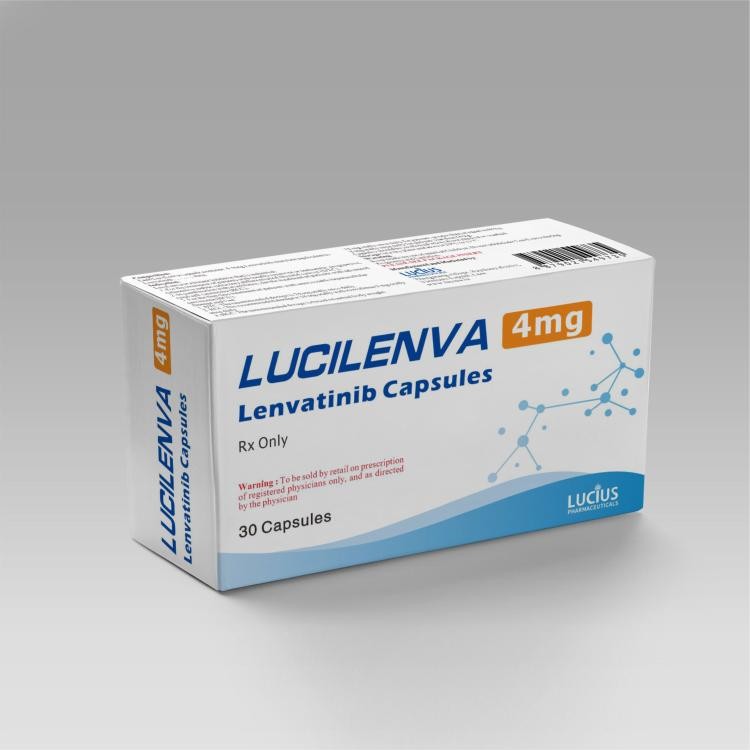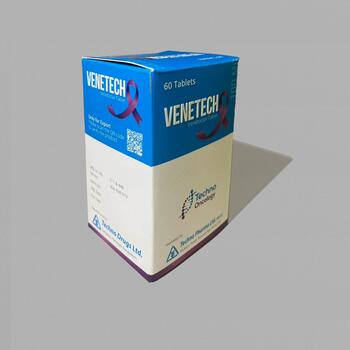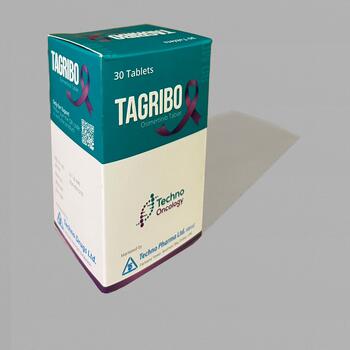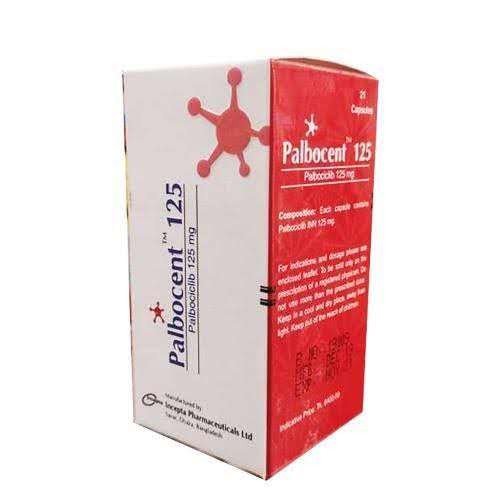乐伐替尼,(Lenvatinib)4mg

1. Composition:
The active ingredient of Lenvatinib is lenvatinib, with the chemical name 4-[3-chloro-4-(N'-cyano-N-methylamino)phenoxy]-7-methoxyquinazoline-6-aldehyde. It is an oral small-molecule drug. The main excipients of Lenvatinib include microcrystalline cellulose, hydroxypropyl cellulose, magnesium stearate, etc., and it is formulated in tablet form.
2. Pharmacological Effects:
Lenvatinib inhibits various tyrosine kinase receptors, including vascular endothelial growth factor receptors (VEGFR1, VEGFR2, VEGFR3), fibroblast growth factor receptors (FGFR1, FGFR2, FGFR3, FGFR4), platelet-derived growth factor receptor (PDGFRα), as well as RET and KIT, thereby suppressing tumor angiogenesis and cancer cell proliferation, ultimately leading to tumor growth stagnation or reduction.
3. Usage Method:
Lenvatinib is administered in oral tablet form, with a recommended dosage typically based on the patient's weight:
- Weight ≥ 60 kg: 24 mg per day (i.e., taking six 4 mg tablets daily), divided into two doses.
- Weight
Depending on the patient's tolerance, liver and kidney function, and any side effects that occur, the doctor may adjust the dosage. It should be swallowed with water and is not affected by meals.
4. Research and Development History:
Lenvatinib was developed by the Japanese company Eisai and was first approved by the U.S. Food and Drug Administration (FDA) in 2015 for the treatment of radioactive iodine-refractory differentiated thyroid cancer (RR-DTC). It was subsequently further approved for indications such as hepatocellular carcinoma (HCC) and renal cell carcinoma (RCC). The background and success of Lenvatinib’s development mark an important breakthrough for targeted anti-tumor drugs in the treatment of various malignancies.
5. Mechanism of Action:
The mechanism of Lenvatinib primarily involves the inhibition of multiple tyrosine kinase receptors associated with tumor angiogenesis, including VEGFR and FGFR. Tumor angiogenesis is one of the key processes for tumor cells to survive, proliferate, and metastasize. By inhibiting these receptors, Lenvatinib reduces the blood supply to tumors, thereby suppressing their growth. Additionally, Lenvatinib also inhibits certain tumor-related signaling pathways (such as RET and KIT).
6. Summary :
Lenvatinib is an effective multi-targeted tyrosine kinase inhibitor widely used for treating various cancers. It prevents tumor growth and spread by inhibiting multiple signaling pathways related to angiogenesis. Its targeted effects are particularly suitable for cancers such as thyroid cancer, liver cancer, and kidney cancer. Due to its multi-target mechanism, Lenvatinib has significant advantages in combating complex tumor environments.







